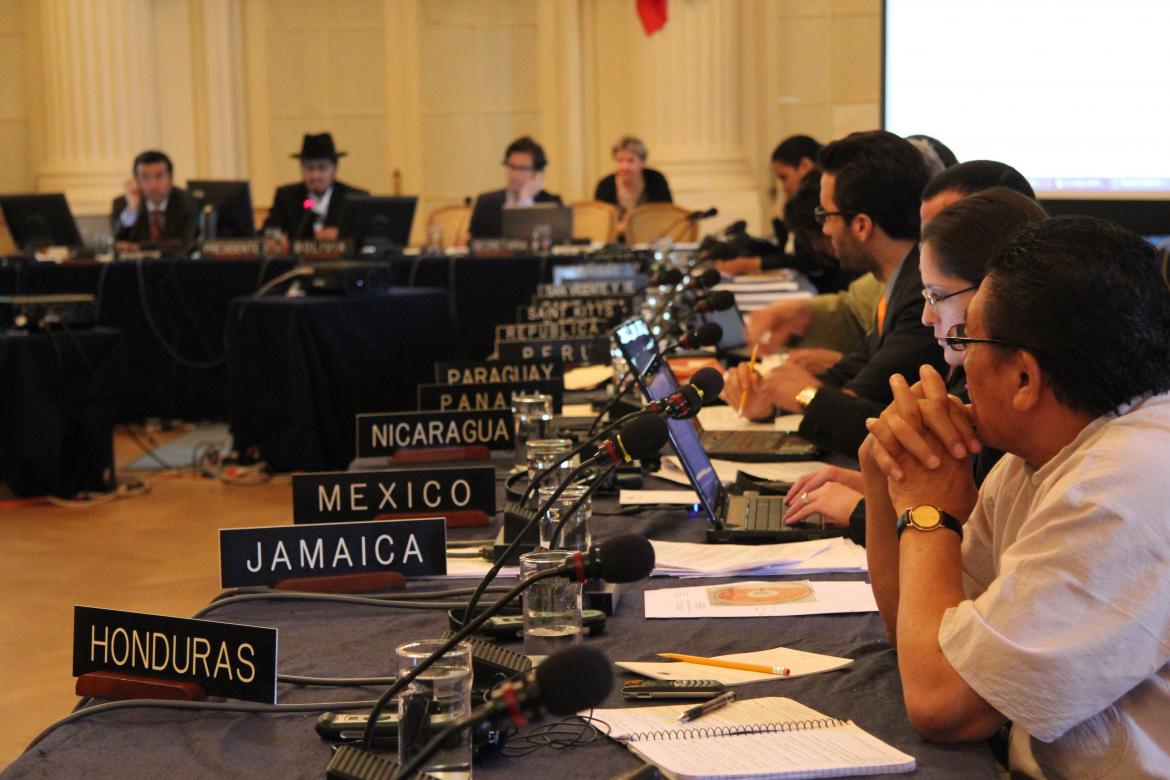

On June 15, 2016, after nearly 30 years of advocacy and negotiation, the Organization of American States (OAS) adopted the American Declaration on the Rights of Indigenous Peoples. The OAS is a regional intergovernmental organization of 35 member countries of the Americas, including the United States.
The American Declaration offers specific protection for indigenous peoples in North America, Mexico, Central and South America, and the Caribbean. It affirms the right of self-determination, rights to education, health, self-government, culture, lands, territories and natural resources, and it includes provisions that address the particular situation of indigenous peoples in the Americas, including protections for those living in voluntary isolation and those affected by a state’s internal armed conflict. Article VII of the Declaration addresses Gender Equality, and includes a commitment that “States shall adopt the necessary measures, in conjunction with indigenous peoples, to prevent and eradicate all forms of violence and discrimination, particularly against indigenous women and children.”
The American Declaration is a comprehensive, regional human rights instrument and it will become one of the most important instruments of the Inter-American Human Rights System. Both the Inter-American Commission on Human Rights and the Inter-American Court of Human Rights will interpret the Declaration to provide content to other instruments, such as the American Convention on Human Rights – the main regional human rights treaty, and the American Declaration of Rights and Duties of Man.
Throughout the negotiations, the Center played a key role in hosting preparatory meetings ahead of the negotiations with indigenous peoples from the Americas, developing proposals and strategies, and providing legal support to indigenous leaders attending the negotiations.
RESOURCES: